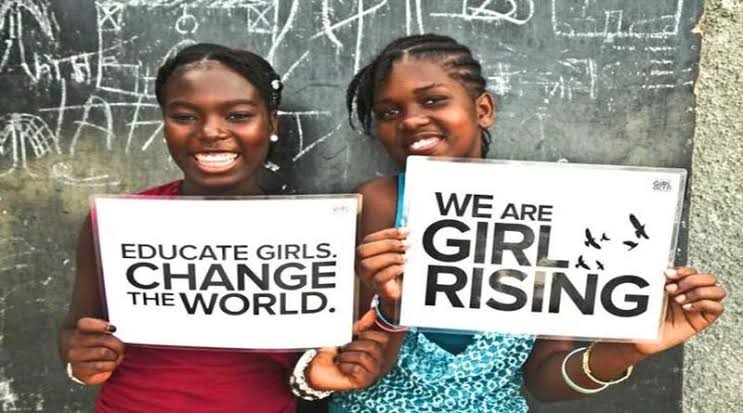Girl-child Education
-
Description :
Articles
In Nigeria, it was revealed that about 9 million (37% out of School children) roam about on the street daily. Nigeria continues with high rate of out of school children every year. Out of this figure, out of school girls are the highest with about 5.5million girl child out of school (Tyokaa et al, 2014). The level of girl child education in Nigeria is poor and shocking. This needs to be addressed. Omolewa (2006) stated that if the country (Nigeria) wants to conquer or reduce poverty, ignorance and disease, the first step is to conquer or eradicate illiteracy. It is then necessary that growing up girls are exposed to education. It is said that education is the fundamental right of every child in a decent society regardless of gender or circumstances (UNESCO, 2008). Therefore, there is the need to expose the girl-child to learning. This will make the girl-child creative, useful to the society and her family technologically developed and improve in lifelong learning system. The organisers of “Save a Life and Destiny” took notice of the fact that the people in Nigeria cannot achieve the above development if the girl child is not exposed to education like their male counterparts. This point forced the organisers to carry out this study in order to investigate the factors inhibiting the girl child education in Nigeria and the way it can be handled. The Girl-child is a young person of the female gender within the age of eighteen years of age. Normally, they are supposed to be under the guidance of their parents. They do not have much to contribute to the family but they take order from their parents. Girl-child according to Muktar.,et al (2011) refers to a baby born biologically as a female offspring between child birth to 18 years of age. This period in human development is made up of infancy, childhood, early adolescent and finally late adolescent stages. The girl-child at a certain period of life grow into maturity and marry thereby become a wife and a mother in future. The discriminatory attitude between the girl child and the boy or male child by the society puts the girl child in a disadvantaged position. This leads to the suppressing of the potentials of the girl-child and therefore leads to her inability to achieve self-realization (Tyoakaa, Ifeanyichukwu & Apine, 2014). Most often, many factors may be responsible for preventing the girl child from not attaining good education in Nigeria. A girl child helping to attain education is sometimes faced with some of these factors such as peer influence, quest for money and material things, unfriendly school situation, effect of social media, low level of understanding of sex education and violence against them (rape, kidnapping, or molestation). Furthermore, the girl-child education has become a serious issue in Nigeria especially where large numbers of growing girls are not in school. This is to confirm what UNICEF (2007) stated and was cited in Grace (2010) that the global figure for out-of-school children is estimated to be 121 million out of which 65 million (53.8% were girls and over 80 percent of these girls live in sub-Sajhara Africa among which Nigeria is one Primary school completion rates in Africa have the lowest in most developing countries of the world and sub-Saharan Africa takes lead in this case, Ibrahim (2012). Offorma (2009) stated that sub-Saharan Africa has the highest number of girls out of school each year, Nigeria is one of them. In Nigeria, many girls are semi-illiterate with basic literacy and numeracy skills. The skills can help in their daily living. However, in order to improve their quality of life and raise their incomes, there is need for them to continue to develop their knowledge and skills through either formal, non-formal or informal education. This type of education which continues throughout lifetime is known as lifelong education (Ngwu, 2011). The girl child will grow to be a wife and mother and therefore will be able to contribute to the broader society positively if educated. This is because the girl child will want peace and harmony, help to sustain security and respect for each other by starting from her immediate family. Hence, there is need to promote social equity, justice and harmony through lifelong education programme for the girl child.
-
Date Posted :
2021-11-16 10:32:36
-
Image



